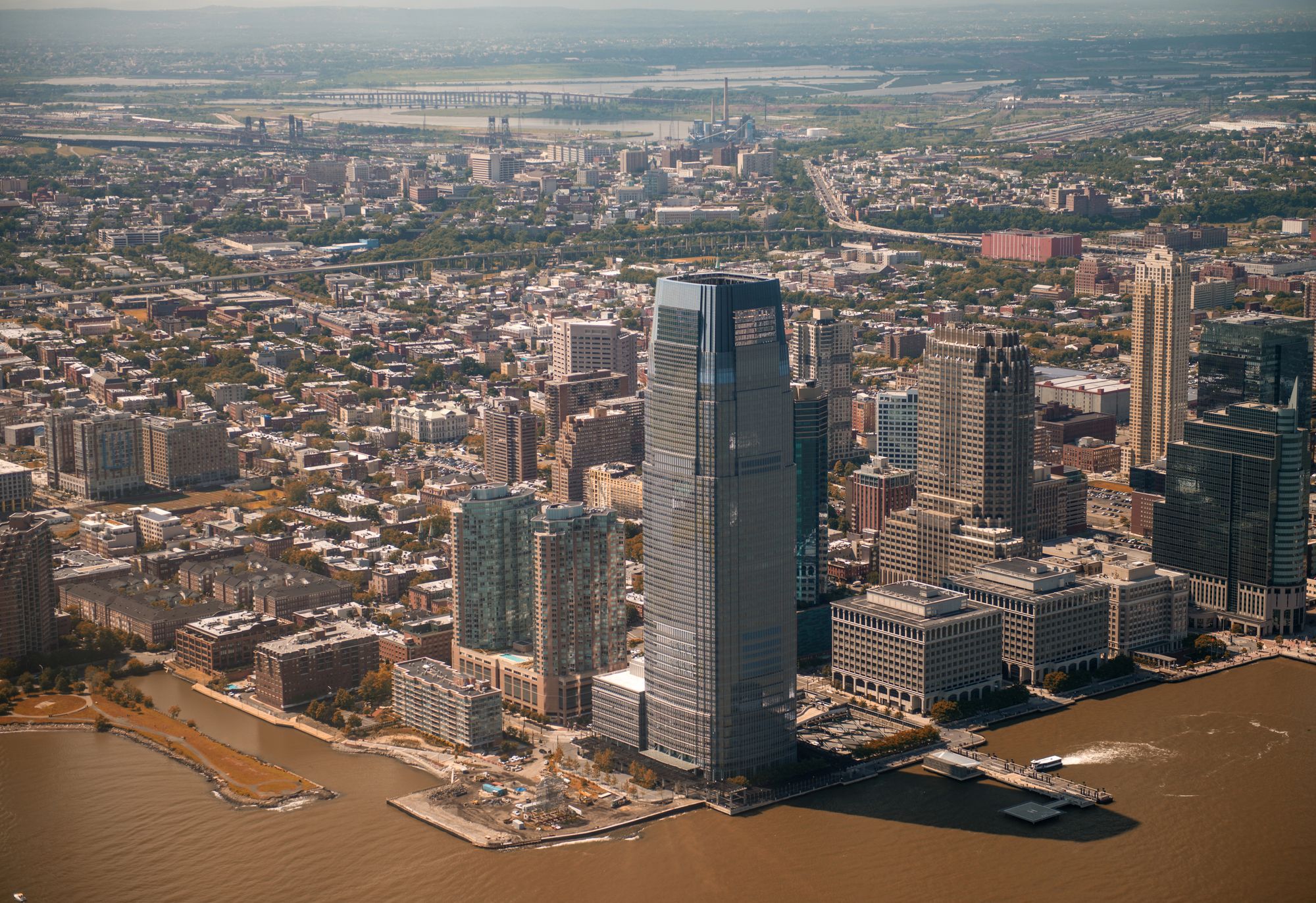New Jersey offers countless ways for residents to earn a living across its diverse economy. From the bustling pharmaceutical companies lining Route 1 to the beaches of the Jersey Shore, opportunities abound in this densely populated state. New Jersey’s major industries include pharmaceuticals, financial services, manufacturing, transportation, and tourism, with the state boasting a median household income of $85,751—significantly higher than the national average.
The Garden State’s economic landscape is shaped by its prime location between New York City and Philadelphia. Many residents commute to these metropolitan hubs while enjoying lower housing costs than in the cities themselves. You’ll find the highest-earning communities in Bergen, Morris, and Somerset counties, where financial professionals and healthcare workers drive up the average income.
Get a discount of 15% to 70% on accommodation in Jersey City! Look for deals here:
Jersey City Hotels, Apartments, B&Bs
When you explore New Jersey, you’ll notice its economic diversity everywhere—from the gleaming office parks housing Fortune 500 headquarters to the thriving agricultural areas producing the state’s famous blueberries and tomatoes. The shore communities balance year-round businesses with seasonal tourism that pumps billions into the economy each summer. Whether in technology, education, or healthcare, New Jersey’s economy offers something for virtually every career path.
Key Industries and Economic Activities
New Jersey’s economy thrives through diverse sectors that offer numerous money-making opportunities. The state’s strategic location near New York City and Philadelphia creates unique advantages for businesses and workers alike.
Manufacturing and Industrial Sectors
New Jersey has a rich industrial heritage dating back to Alexander Hamilton’s 1791 attempt to build the country’s first industrial town in Paterson. While manufacturing employment has declined over decades, it remains crucial to the state’s economy.
Pharmaceutical manufacturing stands out as a major economic driver. New Jersey hosts headquarters and production facilities for many leading drug companies, earning its nickname as the “Medicine Chest of the Nation.”
The chemical industry continues to be significant, with numerous plants throughout the state producing everything from specialty chemicals to consumer products.
Advanced manufacturing has replaced traditional textiles and heavy industry in many areas. Today’s factories in cities like Newark and Paterson focus on higher-value products requiring specialized skills and technology.
Manufacturing jobs typically offer higher wages than retail or service positions, making them valuable for economic mobility despite their declining numbers.
Agriculture and Natural Resources
Despite being the most densely populated state, New Jersey earns its “Garden State” nickname through robust agricultural production. The state’s farms generate substantial revenue from specialized crops.
New Jersey ranks among the top producers of cranberries in America, particularly in the sandy soils of the Pine Barrens region. These ruby-red berries represent one of the state’s most valuable crops.
The state’s diverse agricultural output includes blueberries, peaches, tomatoes, and various vegetables. These fresh products supply both local markets and restaurants in nearby metropolitan areas.
Fishing remains economically important along the Atlantic coast, with commercial fleets operating from ports like Cape May. The seafood industry contributes significantly to shore communities.
Though limited in traditional natural resources, New Jersey’s strategic location itself serves as a resource, enabling efficient distribution of agricultural products to major East Coast population centers.
Finance and Real Estate Markets
Financial services provide lucrative careers for many New Jersey residents. The state hosts significant banking operations, insurance companies, and investment firms.
Real estate represents a powerful economic force, with New Jersey’s property market being among the nation’s most valuable. Housing in affluent communities like Short Hills and Alpine ranks among America’s most expensive.
The state’s proximity to New York City creates opportunities in finance and real estate markets, allowing residents to work in Manhattan’s financial district while living in New Jersey’s suburbs.
Venture capital firms increasingly choose New Jersey locations, particularly in growing innovation hubs around Princeton and northern New Jersey.
The state’s concentration of affluent individuals creates demand for wealth management services, accounting, and specialized financial consulting—all offering high-income potential.
Technology and Innovation
Technology represents one of New Jersey’s fastest-growing economic sectors. The industry employed 184,395 workers as of 2020, providing 5.8% of state private sector jobs.
Life sciences innovation thrives in New Jersey’s research corridor, with biotechnology companies developing new medications and medical devices. These positions often offer six-figure salaries for specialized roles.
Information technology firms cluster around Newark, Princeton, and other tech hubs. These companies develop software, provide IT consulting, and create digital solutions for businesses nationwide.
Transportation and logistics technology is increasingly important, given the state’s position as a major shipping and distribution center. The Port of Newark/Elizabeth stands among America’s busiest.
Research partnerships between industry and universities like Rutgers and Princeton foster innovation and create job opportunities for highly educated workers. These collaborations often lead to profitable startups and technological breakthroughs.
Demographics and Wealth Distribution
New Jersey’s economic landscape shows striking contrasts in wealth distribution across different demographic groups and regions. Understanding these patterns reveals both opportunities and challenges for those looking to build financial success in the Garden State.
Income and Wealth Statistics
New Jersey boasts an impressive median household income of $97,126, significantly higher than the national average. This prosperity, however, isn’t evenly distributed. The state has an extraordinary number of wealthy individuals, with some zip codes reporting average incomes well above $100,000.
The racial wealth gap in New Jersey is particularly striking. White non-Hispanic households have a median net wealth of $103,500, while Black households report just $4,900 and Latino households only $2,300.
Educational level strongly influences earning potential in the state. You’ll find that college graduates typically command salaries 60-70% higher than those with only high school diplomas.
The top 5% of earners in New Jersey make over $250,000 annually, putting them among the wealthiest in the nation.
Regional Economic Disparities
New Jersey’s wealth distribution varies dramatically by location. The northern counties near New York City, particularly Bergen and Morris Counties, demonstrate the highest concentration of wealth and millionaires.
You’ll discover stark contrasts between affluent suburbs and struggling urban centers. Communities like Princeton and Short Hills feature median home values exceeding $1 million, while parts of Camden, Newark, and Atlantic City face persistent economic challenges.
Transportation access shapes economic opportunity. Areas with direct train lines to New York City or Philadelphia command premium housing prices and attract higher-income residents.
The cost of living also varies significantly throughout the state. You’ll need substantially more income to maintain the same quality of life in Bergen County compared to Salem County.
Get a discount of 15% to 70% on accommodation in Jersey City! Look for deals here:
Jersey City Hotels, Apartments, B&Bs
Socioeconomic factors create distinct economic zones within New Jersey, with the northeast corridor showing the strongest economic indicators according to U.S. Census Bureau data.




